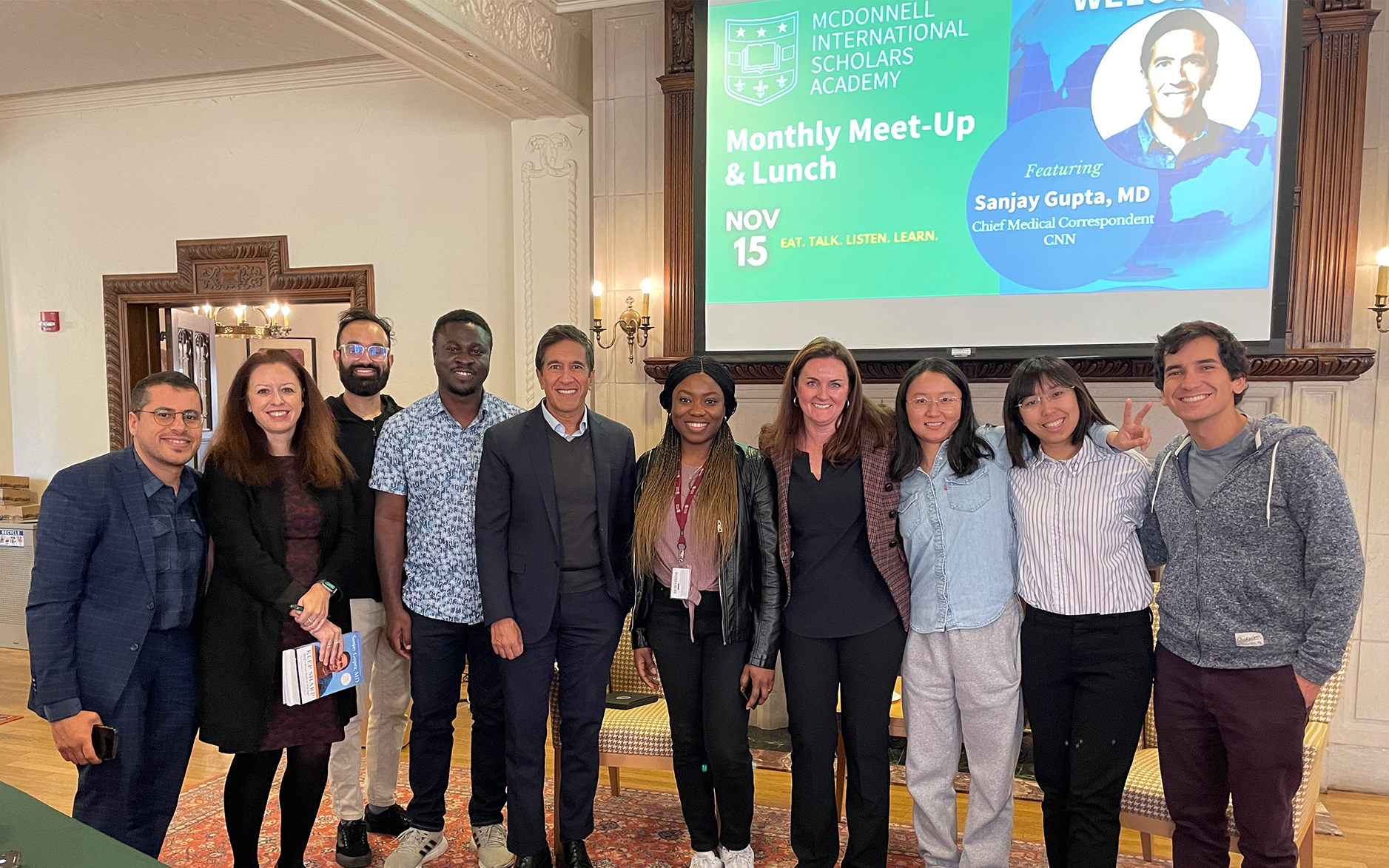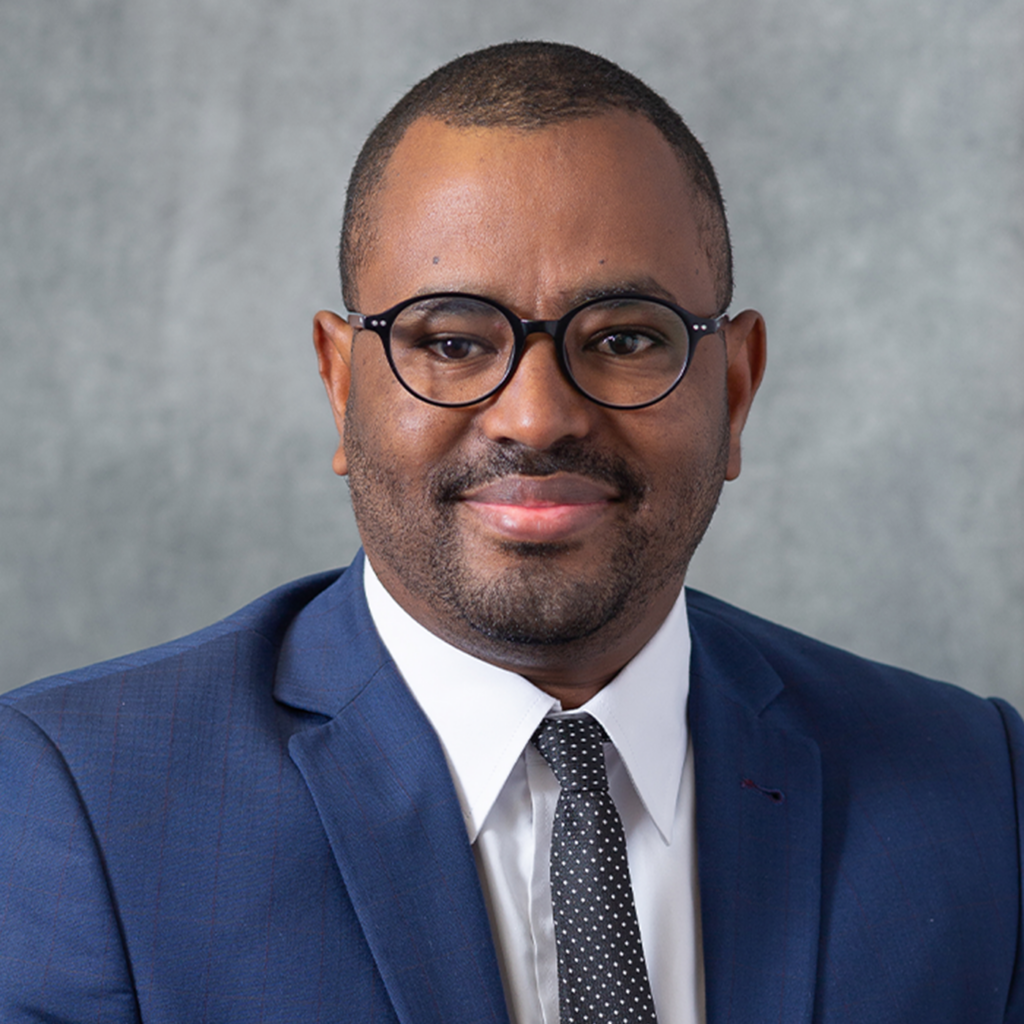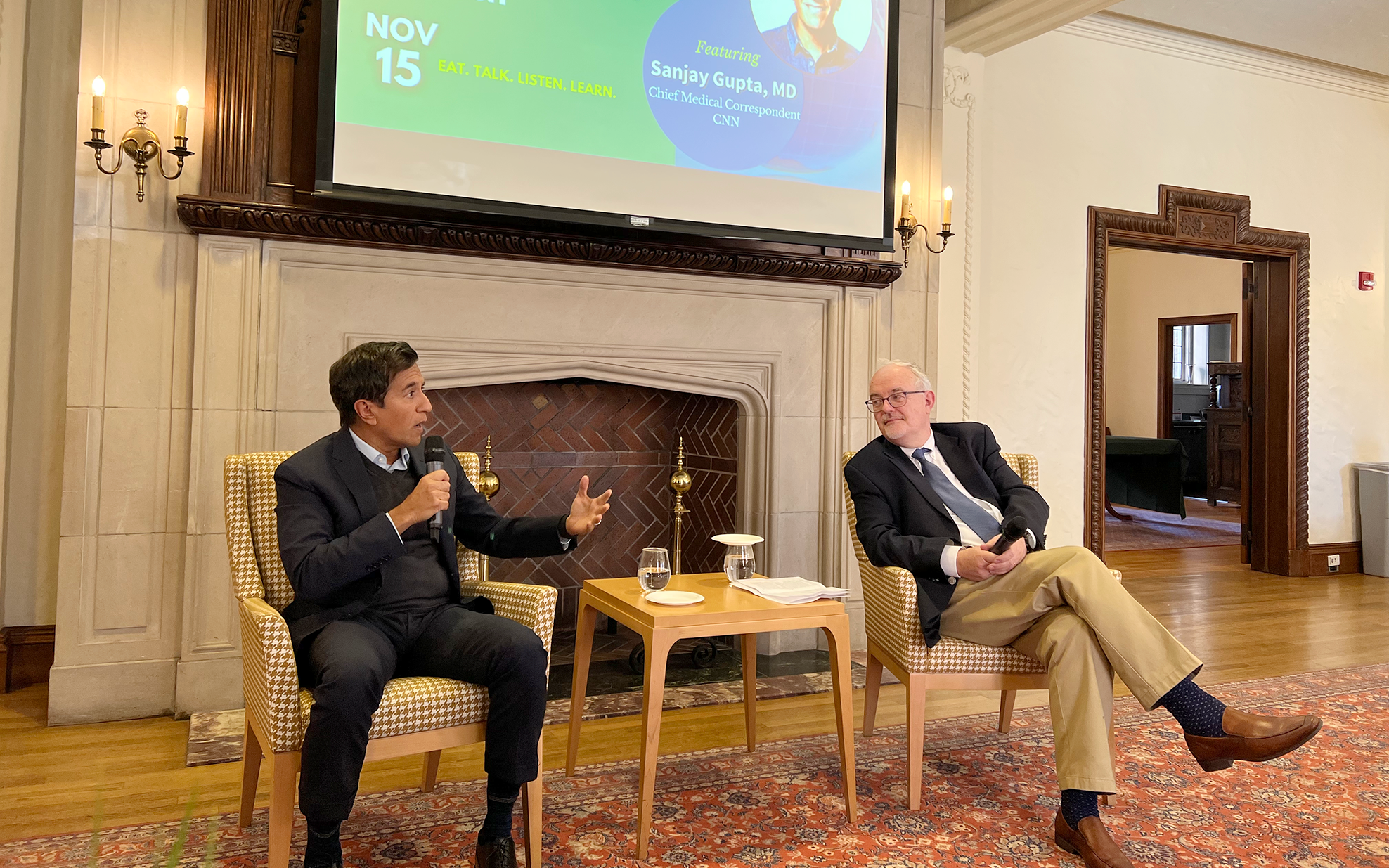by Tewodros Liyew, McDonnell Scholar

Dr. Sanjay Gupta, a multiple Emmy®-award winning chief medical correspondent for CNN and host of the CNN podcast Chasing Life and practicing neurosurgeon, was the guest of honor at the McDonnell Academy’s Monthly Meet-up and Lunch on November 15th! During the fireside chat moderated by Dr. William Powderly, J. William Campbell Professor of Medicine and co-director of the Infectious Diseases Division at Washington University School of Medicine, Dr. Gupta spoke about pivotal moments in his career, communications in the modern world, building trust, and public health challenges.
Addressing Misinformation & Reporting Critical Information

McDonnell Scholar
Public Health Sciences PhD student at Brown School
A key point of discussion during the conversation was misinformation in the media. Dr. Gupta urges emerging leaders to be prepared to address this issue. He pointed out that while health misinformation has always existed, leaders should be well-informed and act based on credible evidence. During his career, Dr. Gupta has reported on critical moments in recent U.S. and world history, including the 9/11 terror attacks, Hurricane Katrina, and the COVID-19 pandemic. For many viewers, Dr. Gupta became a trusted source of information during the novel coronavirus outbreak in 2020. During a period marked by slow scientific progress and countless unknowns, the audience was eager to learn how Dr. Gupta tackled the challenge of communicating uncertainty.
“When we were kids, we were exposed to new things every minute and we enjoyed learning.”
Dr. Sanjay Gupta
Drawing a parallel to childhood curiosity, he reflects on the absence of entirely new experiences in adulthood. “When we were kids, we were exposed to new things every minute and we enjoyed learning,” says Dr. Gupta. With diverse perspectives on COVID ranging from comparing it to SARS to viewing it as a flu, Dr. Gupta emphasizes the importance of avoiding predefined boxes and encourages adapting to evolving evidence. Dr. Gupta advises us to keep an open mind, be receptive to new evidence as it arises, and to provide credible information backed by evidence. By adhering to this principle, Dr. Gupta made the decision to declare the outbreak a pandemic before the World Health Organization (WHO). The audience asked how we can better prepare for a new pandemic. Dr. Gupta emphasized the need for adequate funding for pandemic preparedness. He argued that a widespread virus should be treated as a matter of national security. He talks more about this subject in his new book, World War C: Lessons from the Covid-19 Pandemic and How to Prepare for the Next One.

Authenticity, accuracy, and agreement
When it comes to grabbing the audience’s attention, Dr. Gupta says it’s important to focus on a few important points. Instead of skimming the surface, it is better to delve deeper into a specific topic. Authenticity, accuracy, and agreement, which Dr. Gupta calls the 3 A’s, are some of the elements that drive people to choose one media outlet over another. As a communicator, Dr. Gupta prioritizes telling the truth and using credible evidence – giving the audience the space to make their own decisions. Trust is a crucial element when it comes to communicating with an audience. In situations where a story is developing, saying “I don’t know” goes a lot further in engendering trust than giving partial or misleading information.
Dr. Gupta emphasizes the importance of reflection to create a meaningful impact – What is your purpose? Why does it matter? How can you help others understand the topic on a deeper level? When asked about reporting on health equity and disparities in underserved communities, Dr. Gupta says “Journalists should be the voice to the voiceless.” Although he envisioned a career in medicine and social policy, he found success in journalism. Through journalism, he hopes to highlight stories that would not normally make the headlines.